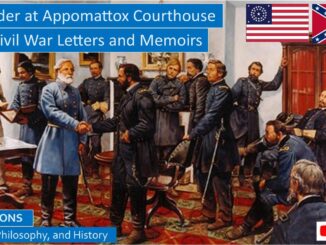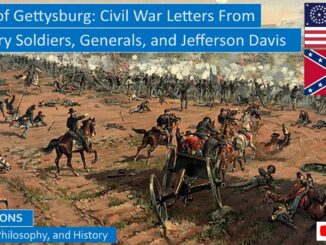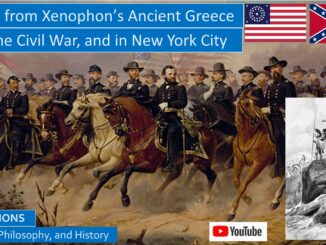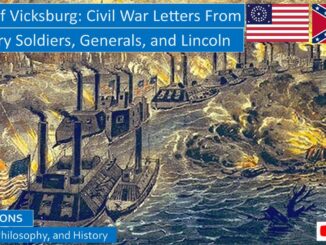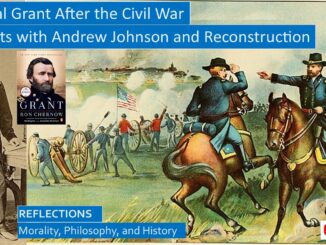
General Grant Supporting Civil Rights and Reconstruction After the Civil War, and His Conflicts with Andrew Johnson
When the new Congress convened, the House Judiciary Committee voted by a 5 to 4 vote to impeach President Johnson. When the Senate overwhelmingly voted to restore Stanton as Secretary of War, Grant vacated his interim position. In the upcoming political struggle, as Chernow relates, “The worse things looked for Andrew Johnson, the brighter was the political future for Grant. In early February, the New York Republican Convention endorsed Grant for President.”
During the Senate trial, Grant argued privately with Congressmen on the need to convict Johnson, but he thought it would be inappropriate for him to appear during the Senate trial. Chernow puts it best: “During the war, Grant had learned that it was better to let power seek him rather than to pursue it; a good general waited to be summoned by his superiors.”
In the end, Johnson was acquitted by one vote. Seven Republicans in total voted to acquit, as they did not think that Johnson’s actions were not the high crimes and misdemeanors that the Constitution declared were needed for impeachment. Ulysses S Grant would handily win the 1868 Presidential election, and Grant’s Presidency will be featured in a future reflection. […]


